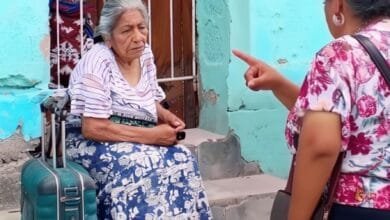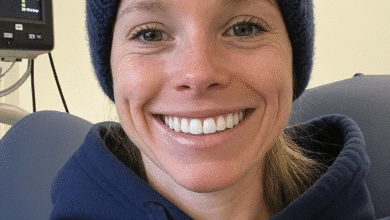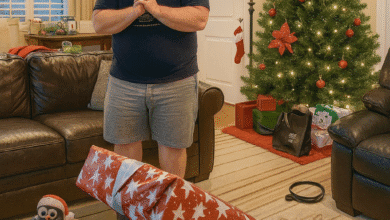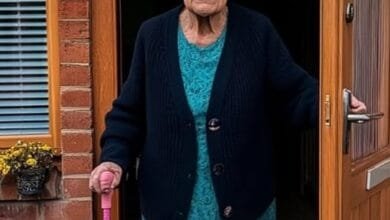SHE WALKED UP TO THE POLICE WITH HER MELTING ICE POP — AND HANDED THEM A NOTE FROM HER MOM.
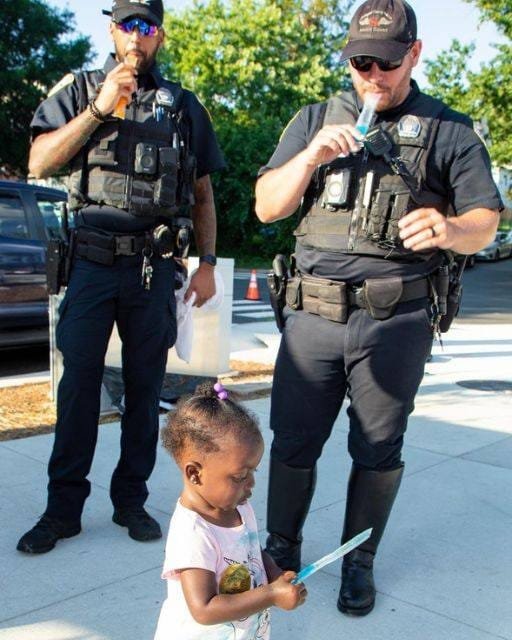
It was nearly 90 degrees out, and the neighborhood was buzzing with a summer block party. Music playing, food trucks lined up, a bouncy house ready to collapse — the usual scene. I was sitting at the community outreach table with two officers, just trying to keep things light. Nobody wants to see a badge unless there’s a good reason.
That’s when she walked straight up to us. She couldn’t have been more than three or four years old.
In one hand, she held a melting blue raspberry ice pop. In the other, a folded piece of paper.
She didn’t say a word. Just blinked once and handed me the note.
The other officer chuckled, assuming it was something silly — maybe a drawing or a thank-you card.
But the moment I opened it, everything changed.
She hadn’t written it.
Her mother had.
The handwriting was rushed, barely legible. But the message was clear.
She said she couldn’t take care of her daughter anymore. That she had no food, couldn’t keep her safe, and didn’t know what else to do. She wrote that the block party was the last place she could think of where someone might notice her daughter — without immediately calling Child Services.
She said she hoped someone in uniform would do the right thing.
I looked around, scanning the crowd. Nobody stood out.
The little girl just stood there, quietly licking her ice pop.
— Look at the end — the officer next to me whispered.
My stomach dropped as I read the final lines:
“Her name is Lila. She likes pancakes and dinosaurs.”
We froze. The weight of it hit us like a brick. That tiny child had been handed over to complete strangers because her mother believed she had no other choice. And here we were, surrounded by sunshine, chatter, and laughing kids.
— What do we do? — asked Officer Ramirez, voice shaky. He was new. Still learning how to deal with things like this. But I’d been doing this long enough to know: there’s no handbook. You just follow your gut and hope it’s the right call.
I knelt down to Lila’s level. Her big brown eyes met mine with a calmness that didn’t match the situation.
— Hey, sweetheart — I said gently. — Do you know why your mommy brought you here?
She shook her head and kept licking her ice pop, her fingers sticky and blue. My heart broke. Kids shouldn’t deal with this. They should be playing in yards and building sandcastles — not entering a broken system because their parents are drowning.
While I stayed with Lila, Ramirez radioed for support. We didn’t leave her side. I grabbed a napkin and wiped her hands.
— Want to sit down for a bit?
She nodded shyly and climbed into the chair beside me, clutching the ice pop like it was treasure.
I tried to distract her.
— So… you like dinosaurs? What’s your favorite?
— T-Rex — she said quietly but firmly. — He’s strong.
— He sure is — I smiled. — The strongest of them all.
For a moment, things almost felt normal. Almost. Then a woman in a beige suit arrived — clipboard in hand. A social worker. Time to face reality.
The next few hours were a blur. A kind local couple trained in emergency foster care took Lila home. Meanwhile, Ramirez and I started trying to trace the note. Who was Lila’s mom? Where had she gone? What had happened?
No one at the party recognized her. We checked hospitals, shelters — nothing. Whoever the mom was, she had planned it too well.
Weeks passed, and every lead hit a dead end. But I couldn’t forget that little girl, handing me that note and trusting us to fix it. And honestly? I didn’t want to fail her.
About three weeks later, Ramirez burst into the station, beaming.
— I found her! — he shouted, waving a piece of paper. — I found Lila’s mom!
Her name was Marisol. She’d been living in her car, moving between parking lots to avoid detection. After leaving Lila, she went to a clinic to seek treatment for depression and anxiety — but the waitlist was too long. She genuinely believed we’d be better equipped to care for her daughter.
When we met her, she was exhausted but determined. She told us how she had spent months rationing food for Lila, how her out-of-state family refused to help, and how she lost her job during the pandemic. She cried every night, wondering if she had done the right thing.

— I just wanted her to be okay — she sobbed. — Even if it wasn’t with me.
Then came the twist: Child Services offered an alternative to permanent separation. A recovery period. Supervised support. If Marisol agreed to housing assistance, job training, and therapy, she’d get regular visits with Lila — and the chance to reunite.
She thought it was too good to be true.
— Why would anyone help me? — she asked. — I failed my daughter.
— You didn’t fail her — I said firmly. — You asked for help. That takes more courage than most people have.
Over the next few months, Marisol worked harder than I’ve ever seen anyone work. She attended therapy, got a part-time job, and eventually moved into subsidized housing. Lila visited every weekend, and their bond slowly rebuilt. At the end of the trial period, Marisol was approved to bring her daughter home.
One year later, I got an invitation to Lila’s fifth birthday.
When I arrived, she ran to me with open arms and the biggest hug.
— You saved me! — she shouted, holding a T-Rex balloon.
I knelt down and laughed.
— No, sweetheart. Your mom saved you. She’s the real hero.
Across the room, Marisol stood smiling, holding a plate of pancakes — complete with dinosaur-shaped sprinkles. For the first time since we met, she looked at peace. Truly happy.
Here’s what I learned: Life puts good people in impossible situations. But love doesn’t demand perfection — it demands presence. It demands persistence. And courage — to ask for help when you need it.
If this story moved you, share it. Let’s spread hope. Because even in the darkest moments… there’s still light. ❤️
